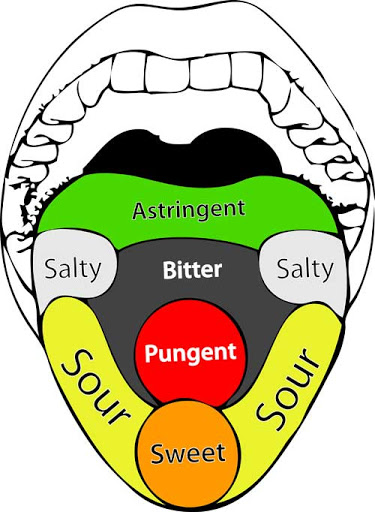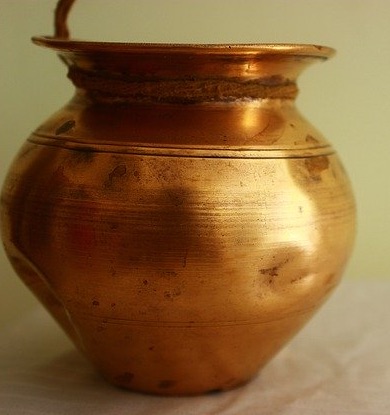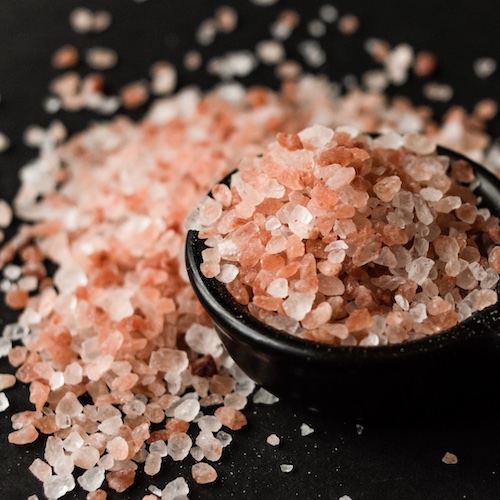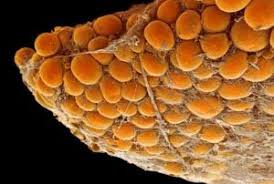According to Ayurveda Shukra is the 7th dhatu or tissue. It supports male fertility and sexual energy. Shuddha Shukra or the pure form of this tissue improves fertility and sexual function in men.
Shukra Dhatu in Ayurveda
This tissue also addressed as ‘dhatu‘ in general, has to be nourished well with a good diet and lifestyle. When this reproductive tissue is healthy, it keeps the man’s fertility and sexual energy up.
In this article, we have tried to explain the meaning of this important tissue, its kshaya, or reduction in quality and quantity. Texts of Ayurveda explain treatments for imbalances that occur in this tissue. Let us know the details.
Table of content
- What is shukra dhatu ?
- What are Functions of shukra dhatu ?
- Shuddha shukra lakshana (pure semen).
- Dooshita shukra lakshana (unhealthy semen) .
- What is shukra dhatu kshaya ?
- What are treatments for shukra dhatu kshaya ? (dhatu Pushti)
- What are Shukra vriddhi laxanas ?
- How shukra imbalance affects health of men ?
- Relationship between majja dhatu (bone marrow) and shukra dhatu (semen)
What is shukra dhatu ?
According to the principles of Ayurveda, the 7 dhatus from rasa dhatu or lymph to shukra dhatu get nourishment from the previous tissue. The core nutrients of majja dhatu (bone marrow) help in the production of this reproductive tissue. Thus the nutrients from majja dhatu flow to shukradharakala and get metabolized by shukragni to form this reproductive tissue. The liquid form of this tissue flows through shukravaha srotas to upkeep the functions of the male and female reproductive systems.
Shukra means ‘pure’. The functions of this dhatu is mainly controlled by Kapha dosha.
According to the texts of Ayurveda, this tissue is pervading all over the body (sarva shareera gathaha). This spread is explained as follows.
This reproductive tissue is present in our body in an invisible manner as ghee is indistinguishable from milk. Same way jaggery can not be seen directly in sugar cane.
Importance of Shukra:
As this reproductive tissue is the end product of dhatu parinaama or the formation of dhatus, it is considered the essence of all dhatus. Hence its level in the body has to be maintained very carefully by consuming nourishing foods and leading a healthy life.
This tissue has to be protected to keep the body healthy. Practicing healthy sexual life, consuming healthy food, and leading a healthy lifestyle help to protect this tissue. Or else it leads to a reduction in the quality and quantity of this tissue.
Functions of Shukra Dhatu
The functions of this tissue are as follows
In Men
It is the main tissue for the production of sperm and seminal fluid. The sexual function and fertility of men are dependent on this tissue. Low-quality or unhealthy shukra dhatu leads to male infertility. Development of secondary sexual characteristics like beard, hoarseness of voice, mustache, underarm hair, and hair on chest and body all are initiated by this tissue. Strong muscles (mamsa dhatu), and a well-built body are all contributed by healthy shukra dhatu. The androgens especially testosterone in men constitute this reproductive tissue.
In women
This tissue in women helps in the production of eggs and improves fertility. It controls the menstrual cycle. It is the reason for secondary characteristics in women like the development of breasts. It lubricates the vaginal canal.
The liquid form of this tissue, in women, gets secreted during sexual activity.
The estrogen and progesterone in women collectively constitute this 7th tissue in women. When this gets imbalanced in women, it leads to female infertility or vandhyatva. It can also cause PCOS or PCOD in women.
In Children:
Children will have shukra in a dormant stage. This is compared to buds of flowers that have hidden fragrances in them. The visible reproductive tissue appears when children reach adulthood.
Shuddha shukra lakshana
A pure and healthy shukra or semen looks like a crystalline jelly with the odor of honey. It is sweet in taste and appears like oil and honey.
Characteristics of Unhealthy Semen (Dooshita Shukra laxana)
Unhealthy semen or abnormalities in semen lead to infertility in men. According to Ayurveda unhealthy semen is known as dooshita-shukra. When vitiated doshas affect semen, the semen loses its ability to fertilize an egg.
The semen and its contents are referred to as “beeja” in ayurveda. The Sanskrit word “Beeja” denotes seed. Acharya Charaka while explaining semen and its vitiation by doshas, gives the following example.
Yathaa beejamkaalaambukrimikeetagnidooshitam |
Na virohati samdushtam tathaa shukram shareerinaam ||
This denotes that “The seeds of plants lose their potency when affected by altered climate, insects, forest fires and nonavailability of water. Likewise the beeja (semen and sperms) in human beings get affected by doshas and lose its potency to produce offspring.”
When vitiated Vata dosha affects semen, the semen becomes frothy, thin, and loses its stickiness. The volume of semen decreases and semen becomes thin. The sperm count reduces and ejaculation is painful.
The semen affected by vitiated pitta looks yellow in color and has an offensive odor. The ejaculation is accompanied by a burning sensation in the penis. In this condition number of healthy sperms reduces.
When vitiated Kapha affects semen, it increases the stickiness of semen and takes a long time to liquefy. The motility of sperm gets affected due to the presence of Kapha.
Sometimes injury in the genital tract and increased sexual intercourse lead to ejaculation of semen with bloodstains
Vayu which gets aggravated due to suppression of sexual urge causes clumping of semen. This type of semen is known as “avasaadi” type of semen in Ayurveda.
Symptoms of decreased shukra dhatu
Difficulty in ejaculation of semen. :
When there is a reduction in this reproductive tissue, men fail to get a strong erection and also they feel it is very difficult to ejaculate semen. Since this tissue is the main support for all reproductive functions in men, its undernourishment causes male health-related problems.
Ejaculating little quantity of semen after painful coitus :
During malnourishment of this tissue, there will be vitiation of Vata. Hence dryness and pain prevail throughout the body. The quantity and quality of semen reduces. The low volume of semen is the main feature of this condition
Weakness:
This 7th tissue energizes the body and upkeeps strength. Reduced strength in this tissue leads to fatigue and weakness. Anemia sets in. Muscles become very weak and man becomes very tired even after little exertion.
Accelerated aging:
This tissue when healthy makes a man look healthy. When its strength is reduced early aging symptoms like dry skin and wrinkles appear on the face and body
Impotence or erectile dysfunction :
When this tissue loses its strength, the male sexual function also takes a back seat. Erectile dysfunction and Premature Ejaculation sets in and fertility decreases. The volume of semen may reduce to zero and there may be no ejaculation at all.
Causes for decrease of shukradhatu (semen):
Old age, Mental stress and worries, chronic diseases, undernourishment, and excessive indulgence in sex or increased ejaculation of semen like masturbation leads to a reduced quantity of semen.
What are treatments for shukra dhatu kshaya ? (dhatu Pushti)
Ayurveda recommends Vajikarana therapy as a treatment to overcome dhatu kshaya. This therapy includes vrushya and vajikarana herbs which increase this dhatu. Herbs like ashwagandha, kapikacchu or mucuna, gokshura or tribulus, safed musli, vidari kanda, shatavari, black musli or talamooli , amla etc help to increase this dhatu. These herbs have to be used after undergoing an ayurveda detox for men. One has to follow an Ayurveda daily routine or dinacharya and rutucharya or ayurvedic seasonal routines to prevent the reduction of this tissue.
Ayurveda Lehya or lehyam for shukra dhatu pushti
Ayurvedic pharmacology texts recommend dhatu pushti preparations in form of lehya or lehyam. Vajikara Lehyam or vajikara rasayana is one such preparation which helps in dhatu pusti. This is a vajikara rasayana which contains shukrala herbs to nourish and strengthen this dhatu. It is a dhatu vruddhikara medicine.
Symptoms of increased shukra dhatu
When this tissue increases beyond limits, it produces ati kaama or increased libido or interest in sex and shukraashmari (seminal calculus). Increased quantity and quality of this tissue prevents men’s health conditions like Impotence, erectile dysfunction, low sperm count, and motility. It improves the fertility of men.
Do You Know the Imbalance of Shukra Dhatu can Affect Men Health?
It is a known fact that men and women have different types of reproductive anatomy and physiology. Still, there are some curious facts that you have to know before going through this article. Testosterone also known as the male hormone is present in both men and women. Men secrete a lot of it and women secrete it in a very little quantity. Estrogen which is a female hormone is also present in both and follows the same path but vice versa. Women secrete more of oestrogen hormone and men secrete a very little amount. Any imbalance in these two hormones can cause infertility in both genders.
The same fact has been described by Ayurveda as
Shukra dhatu can be taken as a combination of estrogen and testosterone which is present all over the body and all body organs respond to this. It is just like how ghee is present in milk in an invisible form and jaggery is present in Sugar cane in the same way. When there is an imbalance in this reproductive tissue both genders suffer problems. Let us see how the imbalance of Shukra Dhatu affects men’s health.
Obesity :
Based on the principles of Ayurveda obesity occurs when Kapha dosha goes off balance. Vitiated Kapha also affects the male reproductive system causing an imbalance of this reproductive tissue. This imbalanced tissue affects the levels of testosterone. Various research has shown the following facts.
- Obesity is a major cause of low testosterone levels
- 75% of men who are obese and whose BMI is more than 40 kg/m2 were found to suffer from hypogonadism.
- The link between obesity and low testosterone levels is found in men of all ages, even in young men and teenagers.
- In elderly men, obesity occurs due to a decline in testosterone levels.
Low Sperm Count and Low sperm motility:
When this tissue gets imbalanced it can lead to the production of unhealthy sperms which are low in count and less motile. This type of semen which contains unhealthy sperms is discussed in detail in Texts of Ayurveda. Health experts opine that imbalanced testosterone levels can cause low sperm count and low sperm motility.
Erectile Dysfunction:
The imbalance of this tissue is the main reason for erectile dysfunction or claibya. Ayurveda acharyas describe various types of erectile dysfunction. Among them Jaraja Claibya (erectile dysfunction due to old age) and claibya due to atisthoolathwa (Erectile dysfunction due to Obesity) are directly linked with an imbalance in testosterone hormone.
Diabetes:
Charakacharya in his ayurvedic text Charaka Samhita says that vitiation of jala bhuta or Water factor in body causes prameha or diabetes. When we consider pancha mahabhuta structure of shukra dhatu, it is made up of Jala and Prithvi (earth factor) mahabhutas. This confirms the link between imbalanced shukra dhatu and diabetes. Doctors say that it is possible that some of the lifestyle factors that increase the risk of diabetes also increase the risk of low testosterone.
Variations in Ejaculate Volume:
When Kapha dosha vitiates this tissue the volume of semen increases with decreased quality of sperm. When Vata dosha vitiates this, the volume of semen and sperm count decrease. This vitiated semen is known as dooshita Shukra or Unhealthy Semen
Depression:
Depletion of this important factor causes Dehalasya (tiredness), Hridklama (depression or mental fatigue), Nirasakti (loss of interest), Nidraheenata (sleeplessness), etc. Various medical types of research show that plummeted testosterone levels can cause diminished ability to concentrate, as well as irritability and depression.
Relationship between majja dhatu (bone marrow) and shukra dhatu (semen)
According to Ayurveda this tissue (semen) is produced by nourishing part of majja dhatu (bone marrow).
A healthy majja dhatu leads to a healthy sukra dhatu .
Ayurveda explains this as follows
This means Majja nourishes the body and helps to maintain its functions. Majja strengthens the body, fills bones, and nourishes this important tissue.
According to modern sciences, scientists are trying to establish a relationship between bone marrow and sperm. In a BBC report, scientists have successfully made immature sperm cells from human bone marrow samples.
Doctors have published papers about “Recovery of spermatogenesis and successful conception after bone marrow transplant for acute leukaemia:” ( https://humrep.oxfordjournals.org/cgi/content/abstract/15/1/83 )
According to Chinese medicines theory. Marrow is formed from the overflowing kidney semen that is stored in the bone cavities. Kidneys produce marrow and the bones are the dwelling places for the marrow. Therefore, both semen and marrow are the most treasured part of the human body.
WhatsApp or email Dr.Savitha Suri @ drsavithasuri@gmail.com, + 91 6360108663/ to know more about ayurvedic treatment to increase sperm count, motility, and sperm health.
Author : Dr. Savitha Suri Consultant Ayurvedic Physician
Free Ayurvedic Consultation
Call us at +91 9945995660 / +91 9448433911
WhatsApp + 91 6360108663/











